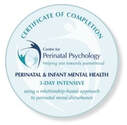Psychological Strategies
Medicare will fund sessions involving focused pyschological strategies such as cognitive behavioural therapy (CBT) or interpersonal therapy. Both are short term, solution focused therapies aimed at reducing symptoms through practicing different ways of responding and widening your thinking and behavioural options. CBT focuses on thoughts and behaviours and the resulting feelings - and changing these, it doesn't necessarily go deeper into the where, why and how you came to think, feel and act the way you do, that is the domain of psychotherapy.
Psychotherapy
Psychotherapy helps you deal with long term emotional problems that may be engrained in your personality, dysfunctional relationship patterns and inner conflicts that can lead to anxiety and depression, plus trauma from childhood or the recent past. There are many different schools of psychotherapy, I am primarily trained in Gestalt psychotherapy with some knowledge of Internal Family Systems therapy (IFS) and somatic psychodynamic therapy. I use Brain Spotting as opposed to EMDR for traumatic memories, and I have an affinity for the spiritual and mystical ineffable aspects of certain experiences.
People often come for help due to a recent crisis and this is not overlooked in the pursuit of delving into the past, while it is often the case that the current crisis was preceded by others, crisis also preceeds growth, This is called post traumatic growth. Not all traumas are life threatening, 'small t' trauma's or chronic ongoing stress that strain one's ability to cope can also tip one into crisis. Then there is the damage caused by others.
When the immediate crisis is acknowledged we may also examine how your past is shaping your current reality. This invloves expanding your self awareness which is facilitated by a skilled therapist who holds the bigger picture for your optimal growth and wellbeing. The truth is many can't see their forest for the trees that block the view, these are the stuck parts of self often out of awareness due to outworn strategies initiated in the past. This is just one way therapy works: Awareness of repeating patterns, alongside allowing space for deep feelings or unconscious material to release is coupled with practical strategies and tools for emotional awareness and healing. The rest is in the healing relationship, an unbiased person who is there just for you, to listen with compassion while holding you to not engage in avoidance, rather to become a more mature, authentic and open expression of your true essential self.
When the immediate crisis is acknowledged we may also examine how your past is shaping your current reality. This invloves expanding your self awareness which is facilitated by a skilled therapist who holds the bigger picture for your optimal growth and wellbeing. The truth is many can't see their forest for the trees that block the view, these are the stuck parts of self often out of awareness due to outworn strategies initiated in the past. This is just one way therapy works: Awareness of repeating patterns, alongside allowing space for deep feelings or unconscious material to release is coupled with practical strategies and tools for emotional awareness and healing. The rest is in the healing relationship, an unbiased person who is there just for you, to listen with compassion while holding you to not engage in avoidance, rather to become a more mature, authentic and open expression of your true essential self.
Depression, Anxiety, CPTSD
Both Anxiety and Depression can create an enduring change in mood, ongoing low or negative feelings that result in feelings of overwhelm and hopelessness, coupled with negative self talk and low energy. Sometimes these emerge from complex post traumatic stress resulting from a dysfunctional upbringing or more recent ongoing stress, loss, trauma, bullying or relationship issues.
Depression can emerge from many places in your life, I have started a youtube series on it which can be found here. youtu.be/jmO6xeSRLcg
Depression can emerge from many places in your life, I have started a youtube series on it which can be found here. youtu.be/jmO6xeSRLcg
What is the difference between a Psychologist, psychotherapist and psychiatrist
find out more here.
find out more here.
Trauma therapy is highly specialised, hence why I call my approach trauma informed without claiming to be a specialised trauma therapist. Rather than EMDR, which is effective but very lenghty, I use Brain Spotting Therapy to facilitate processing, with a somatic focus. I also have some energetic meditations that have helped people remove the toxic residue of perpetrators or complicated relationship dynamics.
“You are here to enable the divine purpose of the Universe to unfold. That is how important you are!” Eckhart Tolle
Integrative Psychology
The aim of an integrative approach is to facilitate wholeness and healing by understanding and treating the many factors that could be manifesting in problematic symptoms.
The integrative approach is wholistic and multi-leveled. Nothing can really be seen in isolation, we are interconnected with our environment, with others and within ourselves. What this means is that when a person presents with a problem, rather than treating the symptoms in isolation all the possible causes are considered for the most effective outcome.
Psychological problems are sometimes the result of past unresolved trauma or unfinished business, but they can also arise from neurotransmitter imbalances. These internal imbalances could be the result of toxins from the diet or an undiagnosed bio-chemical variances, poor diet, stress and unhealthy relationships.
An integrative approach might consider
Many doctors now recognise the need to address the nutritional aspects of disease, and many psychologists have long recognised the need to address the spiritual and emotional aspects of a person's life. The environment in which we live has a huge impact on our well being. The human genome project, for example, brought to light the mutable impact of stress and lifestyle on long term health.
In other words, your mental anguish may not be "all in you mind", it could be your diet, a geneticly inherited biochemical imbalance, a toxic environment or a toxic relationship, something in your past needing to be resolved, something in your future, wanting fulfilment or a combination of any or all of these.
Overall, your problem has a greater chance of full resolution if all contributing factors are considered. You deserve full health and total well being. Symptoms that might warrant further investigation will be referred to other practitioners or integrative doctors where necessary. Clarissa does not diagnose, prescribe or advise on nutrition.
READ MORE ABOUT NEURAL NUTRITION AND BIOCHEMICAL IMBALANCES HERE
Clarissa is familiar with many of the commonly used alternatives to anti-depressants and anti-anxiety medications. She does not, however, diagnose, prescribe or advise on the use of nutrients for psychological issues, if this is an area you choose to explore you will be referred on to an appropriately trained specialist. Never cease any medications without medical guidance, there is a very clear place and need for medications in many instances and they should never be stopped without a doctors consultation or supervision.
The integrative approach is wholistic and multi-leveled. Nothing can really be seen in isolation, we are interconnected with our environment, with others and within ourselves. What this means is that when a person presents with a problem, rather than treating the symptoms in isolation all the possible causes are considered for the most effective outcome.
Psychological problems are sometimes the result of past unresolved trauma or unfinished business, but they can also arise from neurotransmitter imbalances. These internal imbalances could be the result of toxins from the diet or an undiagnosed bio-chemical variances, poor diet, stress and unhealthy relationships.
An integrative approach might consider
- Current life stress/ lifestyle issues e.g life events, need for relaxation.
- Relationship patterns (including work, friends, family and partner relationships).
- Spiritual issues (lack of purpose, inner longings).
- Broader environmental factors including pollutants, natural disasters, local events.
- Past trauma often forgotten and lodged in the body rekindled by present experience.
- Psychodynamic issues, past issues yearning for resolution in the present.
- Poor diet, toxins, inflammation, illness (lots can be going on in the body wreaking havoc in the mind)
Many doctors now recognise the need to address the nutritional aspects of disease, and many psychologists have long recognised the need to address the spiritual and emotional aspects of a person's life. The environment in which we live has a huge impact on our well being. The human genome project, for example, brought to light the mutable impact of stress and lifestyle on long term health.
In other words, your mental anguish may not be "all in you mind", it could be your diet, a geneticly inherited biochemical imbalance, a toxic environment or a toxic relationship, something in your past needing to be resolved, something in your future, wanting fulfilment or a combination of any or all of these.
Overall, your problem has a greater chance of full resolution if all contributing factors are considered. You deserve full health and total well being. Symptoms that might warrant further investigation will be referred to other practitioners or integrative doctors where necessary. Clarissa does not diagnose, prescribe or advise on nutrition.
READ MORE ABOUT NEURAL NUTRITION AND BIOCHEMICAL IMBALANCES HERE
Clarissa is familiar with many of the commonly used alternatives to anti-depressants and anti-anxiety medications. She does not, however, diagnose, prescribe or advise on the use of nutrients for psychological issues, if this is an area you choose to explore you will be referred on to an appropriately trained specialist. Never cease any medications without medical guidance, there is a very clear place and need for medications in many instances and they should never be stopped without a doctors consultation or supervision.
"Enlightenment is not a transcendental state but the process of lightening the density of the personal ego." (Adyashanti)
Biochemical disorders and imbalances that affect your mood - read more
|
Your mind is connected to your body. In fact, your brain is just the peak of your nervous system connected to your entire history and fed by what you eat! If you are imbalanced it is likely your biochemistry is also. Pyrrole disorder, gut bacteria imbalances, methylation and biotoxin illness all effect your psychological state.
|




